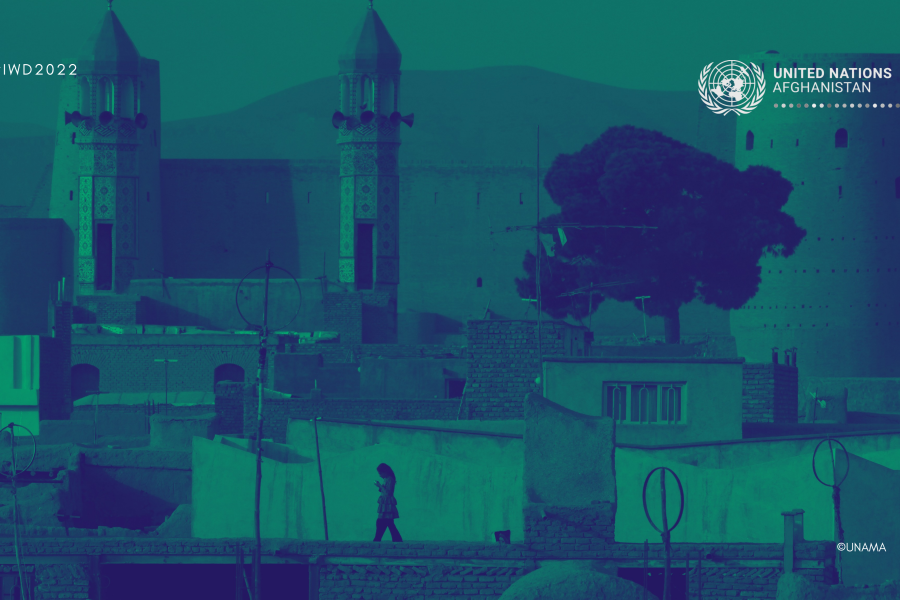24.4 million people need humanitarian assistance now Afghanistan. Half are women & girls – these are their stories of struggle and defiance
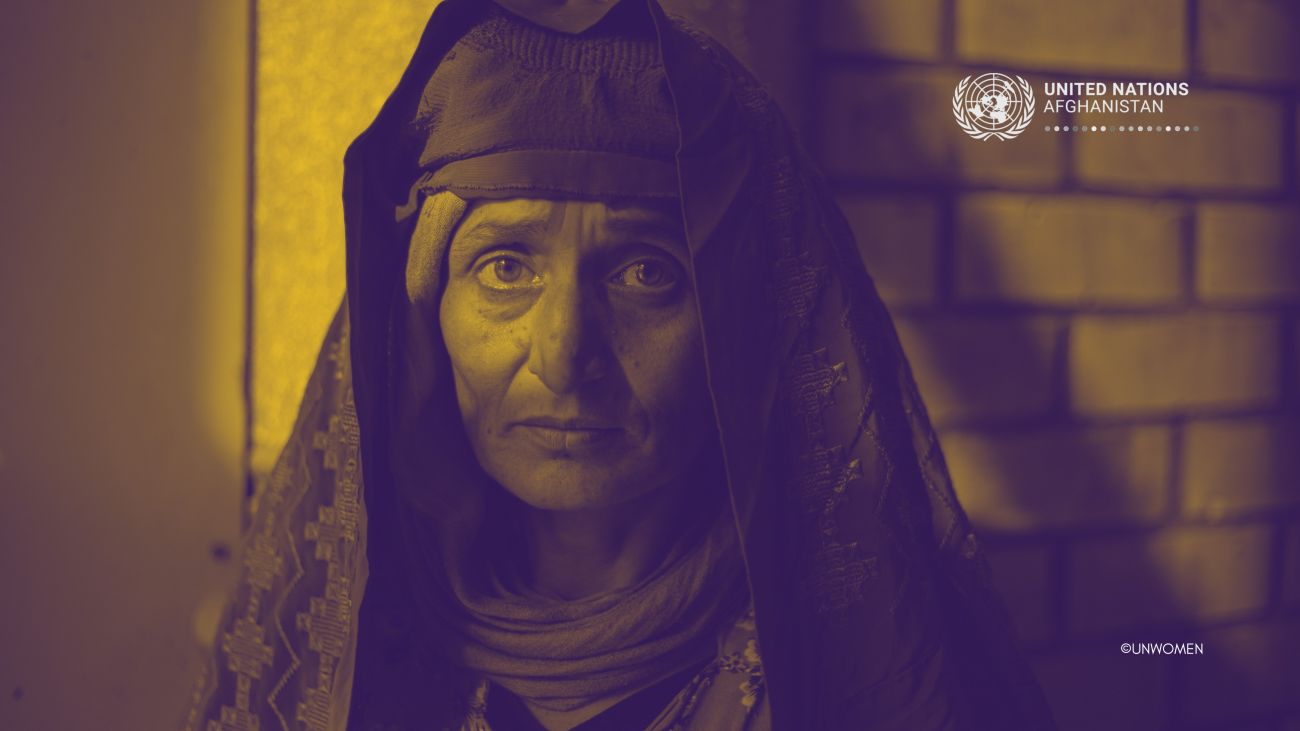
International Women’s Day
Women’s access to safe outdoor spaces is limited in Jalalabad. When Marzia, a woman community leader, heard about the intervention by the United Nations Human Settlements Programme and its partners in her community, she started a campaign to convince all local men and women to vote for a women’s park to be built. This community project indeed passed a vote and Jalalabad now has a green area for women.
“Women decided to build a park here in our community, because they recognized the importance of a green area for women. Now we have taken a step towards true humanity, in which all women and men have the same right and responsibilities,” said a local man in Jalalabad. Community leaders like Marzia played an active role in advocating for the initiative, but also in the project planning, implementation and monitoring.
On International Women’s Day and every day, the United Nations in Afghanistan stands with women like Marzia to ensure that they have what they need to live a life of their choosing.
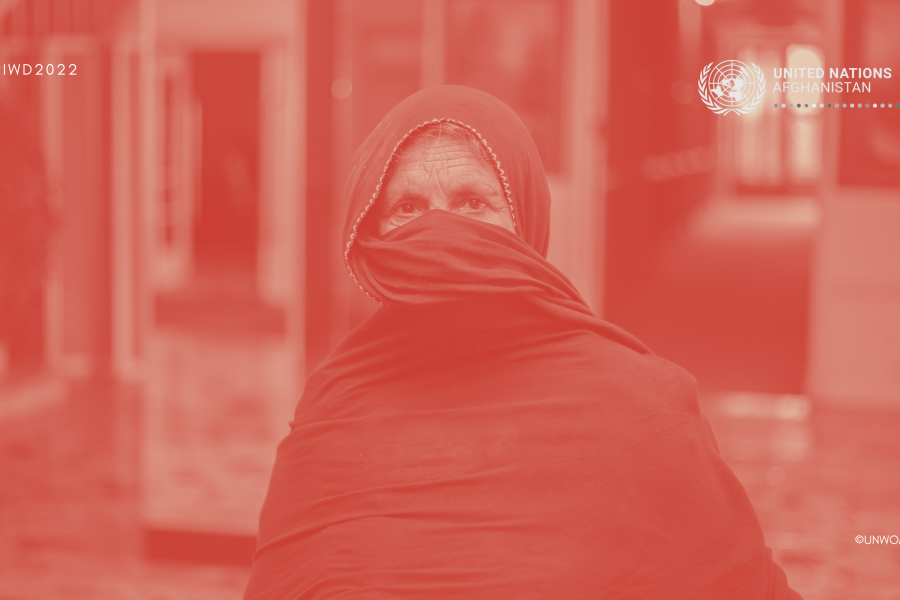
“I listened to the dangers of early marriage and decided to spare Shabana from what happened to my first daughter. My husband, however, did not want to listen to me.” Shabana is 13 and her mother did not give up on protecting here, but rather sought advice at one of the safe centres run by the Spotlight Initiative and its partners in Herat province.
Counsellors at the centre spoke to Shabana’s father about all the unpleasant aspects of early marriage and the responsibilities of a father to protect his daughters. At the safe centre, Shabana and her family also received food and her father got a small job selling vegetables. He now is no longer interested in marrying off Shabana.
At this moment, 24.4 million people in Afghanistan, more than half of the country’s population, need humanitarian assistance. This dire crisis is pushing many families to resort to desperate measures like child labour and early marriage. On International Women’s Day and every day, the United Nations in Afghanistan stands with teenage girls like Shabana to ensure that they have what they need to live a life of their choosing.
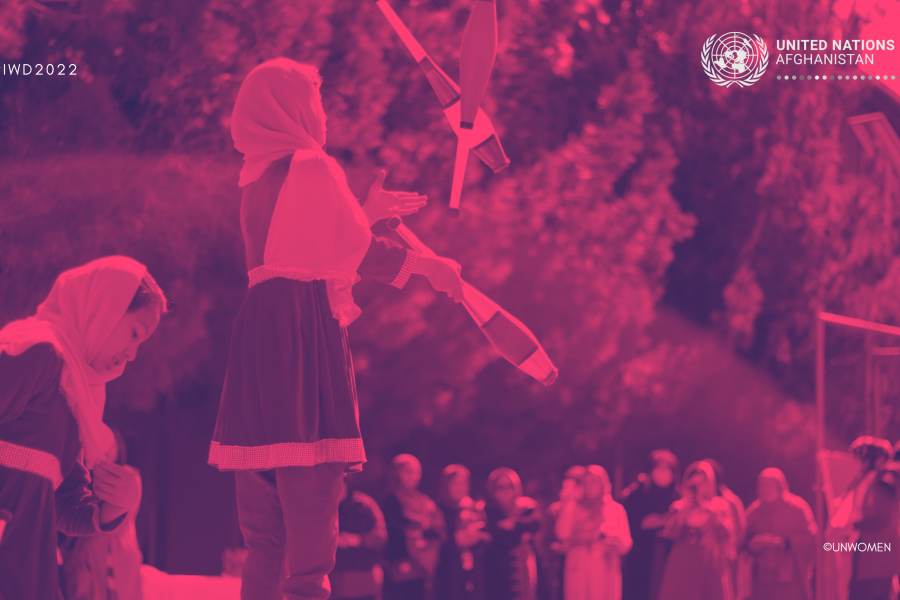
Zahra was top of her class and an inspiration to other students at the tailoring sessions provided by the United Nations International Labour Organization in Mazar-i-Sharif. A difficult financial situation forced Zahra and her family to live in a tent. But her commitment to learning new skills and her talent for tailoring helped Zahra pull herself and her family out of poverty.
Within 8 months of completing the training course, Zahra’s new income had paid for the construction of a room where she could live with her family. She also managed to scale-up her tailoring business and bought a motorcycle, now used by her husband to deliver goods to the market. By the end of the year, Zahra hopes to be able to add another room to her quarters, improving the living conditions of her family. Her ambition is to help her children receive the education that she always dreamt they would have.
No one should be forced to live in a tent, but when this happens, the United Nations is there to ensure that people have what they need to pull themselves out of poverty and into a better life. On International Women’s Day and every day, the United Nations in Afghanistan stands with women like Zahra to ensure that they have what they need to live a life of their choosing.
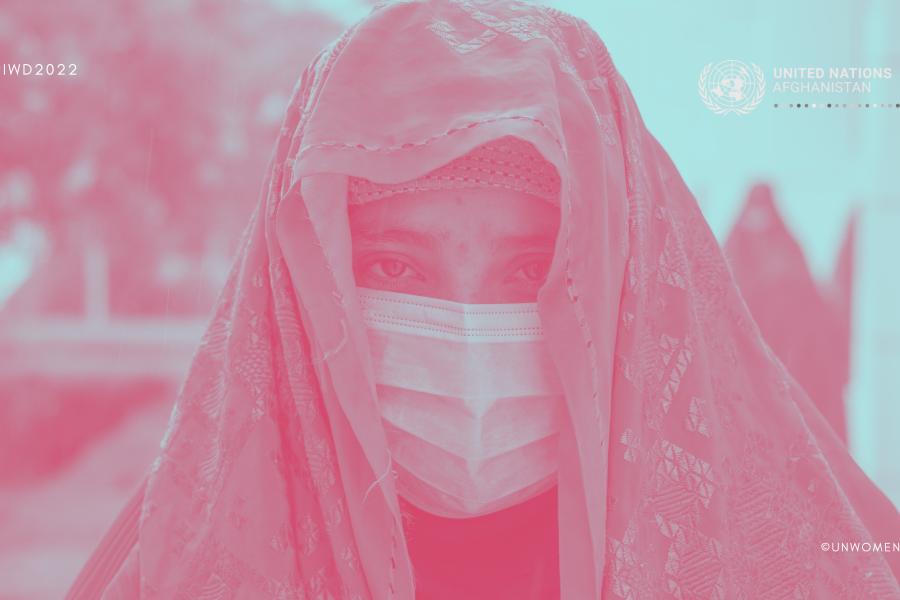
“Every morning when we used to take the cows to the pasture, I would go to the hill in front of the boys’ school and watch the school. I loved school before I knew what school meant,” said Basmina, who grew up in Khost province. The school was too far away from Basmina’s village and her father was worried that she would not be safe, and that the community would judge their family.
One day, Fariba, a teacher in a literacy programme run by the United Nations Educational, Scientific and Cultural Organization and its partners across Afghanistan, came to their house. Fariba was looking for girls like Basmina, eager to learn how to read and write, to join her literacy class. Basmina’s mother again faced the reluctance of her husband, but this time she did not give up – the school was established in their village and the teachers were all women. Years passed and Basmina graduated from university – top of her class. Now, she works as Lead Adviser for an international organization in Afghanistan. None of this would not have been possible if Fariba – Basmina’s first teacher – had not knocked on her door all those years ago.
On International Women’s Day and every day, the United Nations in Afghanistan stands with women and girls like Basmina, her mother, and her dedicated teacher, Fariba, to ensure that they have what they need to live a life of their choosing.
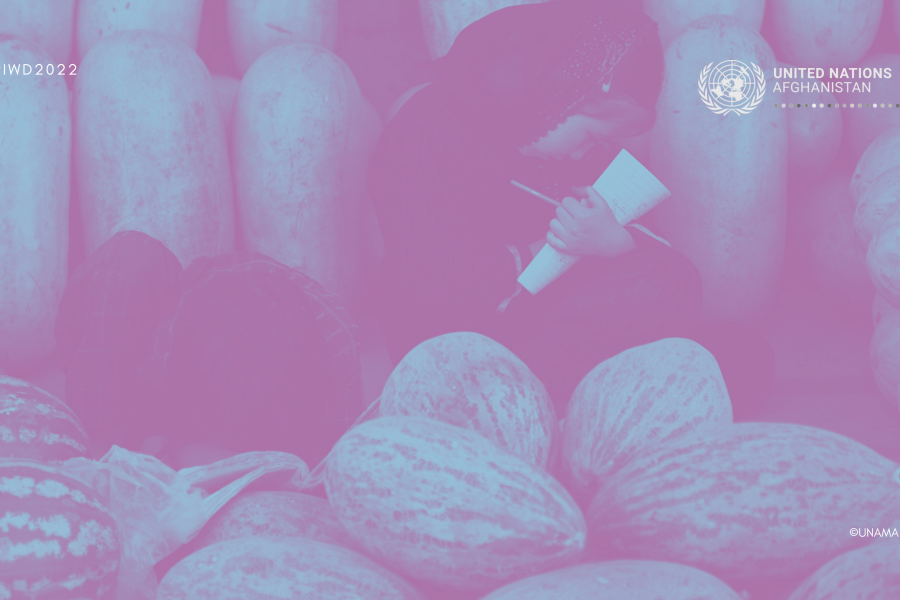
Nabila and her family were forced to leave their home due to insecurity in their province. In 2007, they returned to Afghanistan, but their hometown was still not secure enough to allow resettlement, so they found refuge in a camp in Mazar-i-Sharif. While living in the camp, Nabila learnt how to embroider. Previously unemployed, and with her parents in need of medical assistance and unable to work, Nabila is now the sole breadwinner of her family.
Nabila is one of 5.5 million internally displaced Afghans, who have fled their home in search of refuge within their country. On International Women’s Day and every day, the United Nations in Afghanistan stands with women like Nabila to ensure that they have what they need to live a life of their choosing.
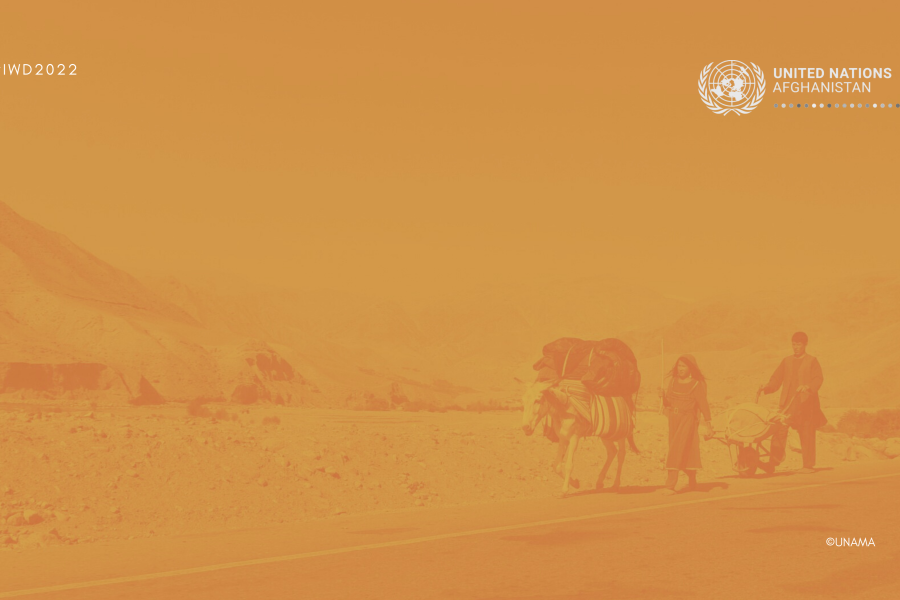
Mansoora used to be a Computer Science student at the University of Balkh, but the fall of the democratically elected government in Afghanistan pushed Mansoora out of the classroom and into her home. Technology has always been her passion, so when the United Nations International Labour Organization offered support, she signed up for a mobile phone repair workshop. Now, she is training other women on how to repair phones, while providing software services for women customers at a shop in Mazar-i-Sharif.
Mansoora is grateful that she can contribute to her family’s income and save money for her education, but she is also eager to get back to university. She dreams of one day running her own repair business. The United Nations stands firm in the belief that women and girls should be able to pursue the education of their choice.
Forced to suffer the consequences of multiple overlapping crises, millions of Afghan students – the country’s future – are out of school. On International Women’s Day and every day, the United Nations in Afghanistan stands with women like Mansoora to ensure that they have what they need to live a life of their choosing.
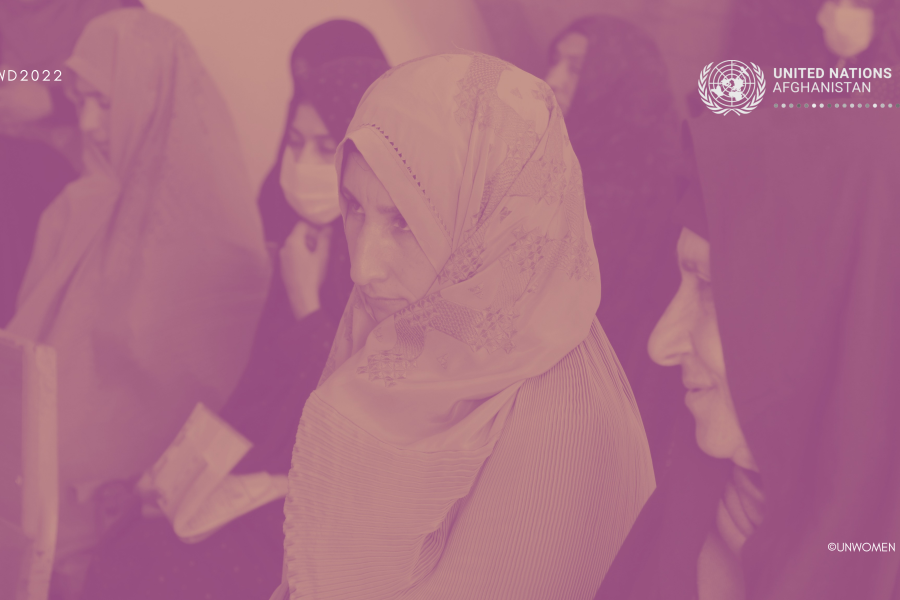
Born in a village in Afghanistan, Zarina did everything she could to obtain an education. However, her family only allowed her to attend until the second grade. But her mother did not give up, homeschooling Zarina right through to the twelfth grade. Zarina then moved to a city, studying at tertiary level for three years – until her family decided that she could no longer attend university. Reflecting the determination of her mother before her, Zarina did not give up and continued her degree in Turkmenistan, where she studied Political Science. But she ultimately was forced to stop her studies, due to financial difficulties.
Upon returning to Afghanistan, Zarina found work in a soap factory, and now sometimes leads the production process. In her spare time, Zarina writes poetry – with a series of her poems being published in Europe. Zarina dreams of one day running her own soap factory.
Every day that a girl misses out on an education is a missed opportunity – for them, for their family, for their community. In Afghanistan, 60% of the 4.2 million children not enrolled in school before the recent humanitarian crisis were girls. On International Women’s Day and every day, the United Nations in Afghanistan stands with women like Zarina to ensure that they have what they need to live a life of their choosing.
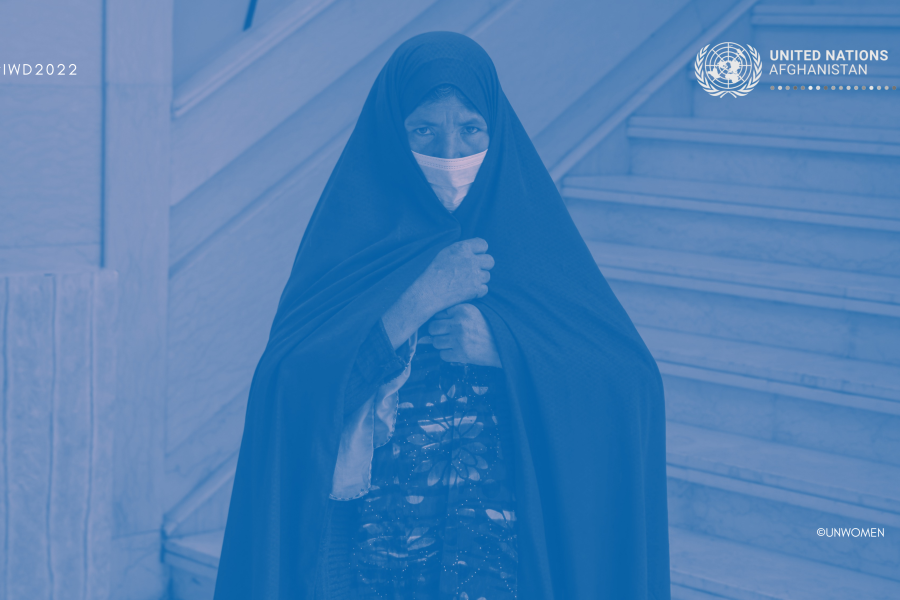
Zainap, 17, has two sisters and two brothers. They live in a village in Herat province with their mother, who does all the work in the house, and their father, who is self-employed. When Zainap first came to the Girls Safe Space run by the Spotlight Initiative and its partners, she was very scared. She talked about her father being harsh, shouting and even beating her because she did not yet wish to marry.
The social worker helping Zainap at the Girls Safe Space was able to provide practical advice on how to speak about her worries to her mother and religious leaders. In the end, Zainap’s father understood how terrified she was. The situation slowly improved at home, and Zainap was no longer pushed to get married.
Some 28 per cent of Afghan women aged between 15 and 49 were married before the age of 18. On International Women’s Day and every day, the United Nations in Afghanistan stands with teenage girls like Zainap to ensure that they have what they need to live a life of their choosing
